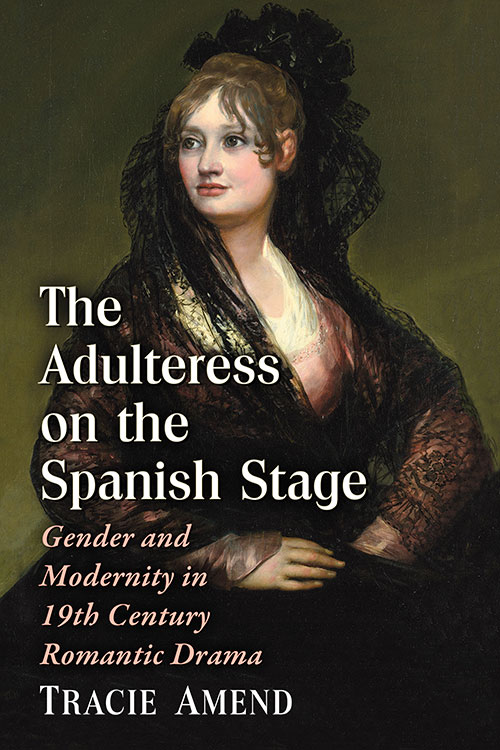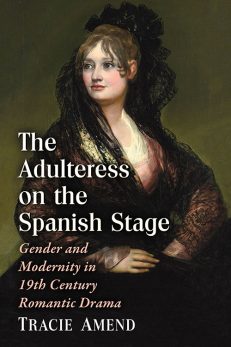The Adulteress on the Spanish Stage
Gender and Modernity in 19th Century Romantic Drama
$49.95
In stock
About the Book
As early as 1760 and as late as 1920, Romantic drama dominated Peninsular Spanish theater. This love affair with Romanticism influenced the formation of Spain’s modern national identity, which depended heavily on defining women’s place in 19th century society. Women who defied traditional gender roles became a source of anxiety in society and on stage. The adulteress embodied the fear of rebellious women, the growing pains of modernity and the political instability of war and invasion. This book examines the conflicted portrayal of women and the Spanish national identity. Studying the adulteress on stage, the author provides insight into the uneasy tension between progress and tradition in 19th century Spain.
About the Author(s)
Bibliographic Details
Tracie Amend
Format: softcover (6 x 9)
Pages: 228
Bibliographic Info: notes, bibliography, index
Copyright Date: 2015
pISBN: 978-0-7864-9692-1
eISBN: 978-1-4766-1997-2
Imprint: McFarland
Table of Contents
Preface 1
Introduction: Examining the Romantic Adulteress on Stage 5
One. Modern Spain and Romantic Theater 15
Two. The Delirious Adulteress: Prescient Romantic Tragedy (1800–1810) 40
Three. The Contaminating Adulteress: The Height of Spanish Romantic Tragedy (1811–1839) 77
Four. The Adulteress as Wayward Daughter: Romantic Drama at Mid-Century (1840–1855) 105
Five. The Adulteress as Isabel’s Handmaiden: Feminine Duality in the Alta Comedia (1856–1869) 131
Six. The Modern Bourgeois Adulteress: Neoromanticism and the Tragic Melodrama (1870–1895) 156
Epilogue: Romantic Theater in the Twentieth Century: A Brief Overview 185
Conclusion: Tradition versus Progress: The Perpetual Tension in Romantic Theater 193
Chapter Notes 197
Bibliography 209
Index 217
Book Reviews & Awards
- “An original and significant contribution…. Well researched and nicely focused on specific aspects of the romantic adulteress, it traces the history of Spain’s theater in the entire 19th century through a new lens. A careful intertwining of political and theatrical history, Amend’s analyses are original and illuminating.”—Roberta Johnson, professor emerita of Spanish, University of Kansas





